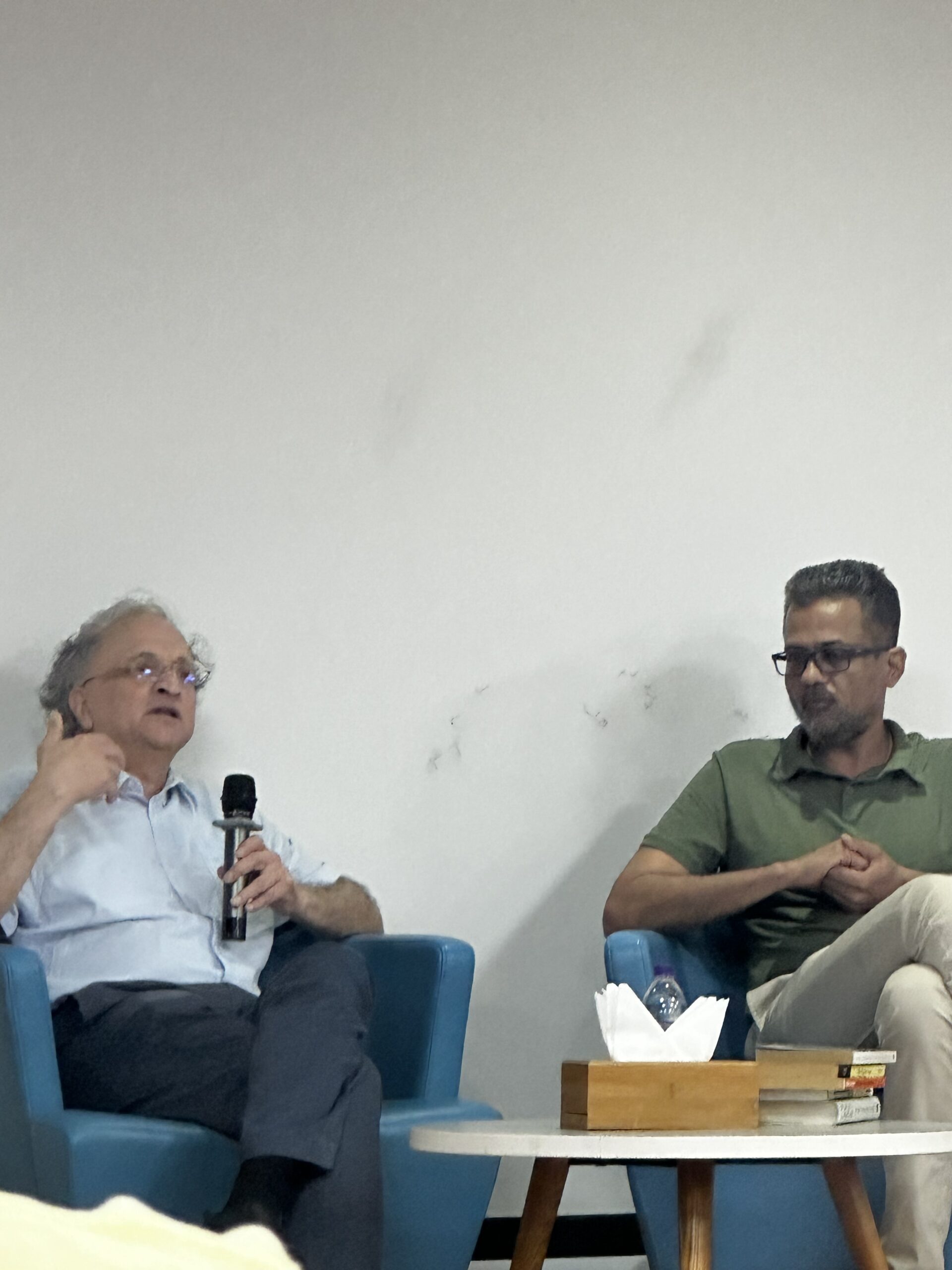On 10 December 2024, Professor Ramachandra Guha, Distinguished University Professor, SIAS, and a renowned historian and writer engaged in an enlightening conversation with Dr Bharath Sundaram, Sundram Fasteners Associate Professor of Environmental Studies, SIAS. The discussion revolved around Professor Guha’s latest book, Speaking With Nature, marking his return to environmental research.
In this book, Professor Guha challenges the common perception that countries like India, often labeled “too poor to be green,” lack environmental awareness. Through meticulous research, he uncovers a largely unacknowledged prehistory of the global environmental movement rooted in India, extending beyond Western narratives. The book highlights the contributions of ten remarkable individuals — Rabindranath Tagore, Radhakamal Mukerjee, JC Kumarappa, Patrick Geddes, Albert and Gabrielle Howard, Mira, Verrier Elwin, KM Munshi, and M Krishnan — who, long before climate change became a global concern, wrote about critical ecological issues such as deforestation, water conservation and urbanisation.

The conversation was both thought-provoking and insightful, emphasising the interconnected roles of local, regional, national and global perspectives in environmentalism. It also delved into the contrasting dynamics of stomach environmentalism and livelihood environmentalism across the global south and north. Additionally, the discussion explored the role of social media in shaping societal decisions, questioning whether a single click truly creates a long-term impact.
Professor Guha shared that one of his motivations for writing this book stemmed from witnessing the emergence of a third generation of environmentalists at Krea and the growing urgency of the global climate crisis. During the pandemic, he revisited and expanded his earlier research, culminating in Speaking With Nature. He expressed hope that his book would inspire other scholars to delve deeper into Indian environmentalism — exploring grassroots movements, unrecognised individuals, or the broader spectrum of environmentalism in India before and after the Chipko movement.
The talk left the audience with much to ponder, and reflect upon and a strong motivation to read Speaking With Nature.
A report by Pranvi Khare, Cohort of 2027, SIAS